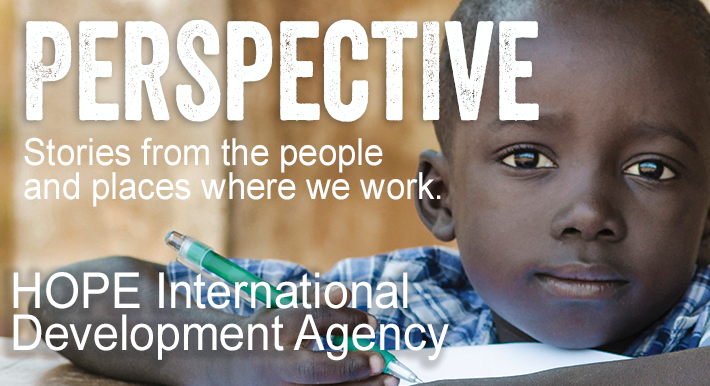Over the past 2-months, HOPE and the community of Kalebo Laka, in southern Ethiopia, have been collaborating on the construction of a gravity-fed water system that will provide clean water to the entire community.
In Kalebo Laka, working in a holistic manner means that in addition to capping three water springs, constructing two water tanks, laying 4.5 km of pipe, and installing 8 wash basins (or what we like to call “hardware”), other initiatives such as training in self-help groups, water management and hygiene (the “software”) are taking place.
With the construction of the water system, families no longer need to travel long distances to collect water. They now have more time to embark on other endeavors that can lift them out of poverty.
Rather than spending much of their day collecting water, women now have the opportunity to join HOPE-facilitated self-help groups (link to previous SHG post) that provide training in creating and running income-earning businesses, access to low-interest loans to support business start-ups, and savings programs.
Water management committees, established as part of a holistic approach, are gender-balanced and work with local leaders and community members to ensure that water taps and systems are maintained and used properly.
Hygiene awareness training ensures that households have the knowledge needed in order to improve hygiene practices and properly store and use the water.
In some communities, HOPE’s Ethiopian colleagues assess if local establishments, such as healthcare centres or schools, could also benefit from improved hygiene practices and facilities. If so, they work with the community to ensure that hygiene facilities are built. In a community near Kalebo Laka, this has meant that well functioning latrines have been built at a school and healthcare centre.
Communities participate in creating the positive changes they need by being part of the assessment, planning, and implementation of a water system. They give time, labour, and local materials in order to ensure the success of the water system. They also take a leading role in ensuring initiatives such as hygiene training are well attended.
In the next few months, the water system in Kalebo Laka will be formally handed over to the local community, along with the long-term responsibility for the use and maintenance of the system.
While the advantages of the “hardware” side (the water system) are often more evident initially as a direct benefit to the community, it must be complimented with the “software” side (self-help groups, hygiene training, and water management) in order to ensure the positive impact of clean water remains for generations to come.
 |
| Women participate in a training session in Kalebo Laka. |

